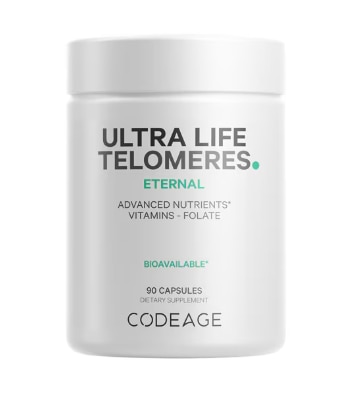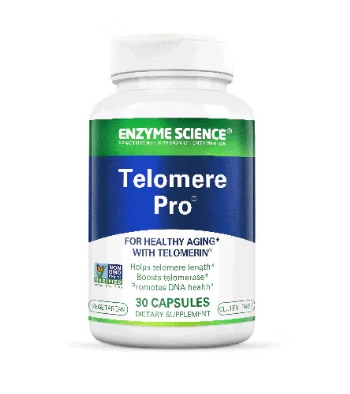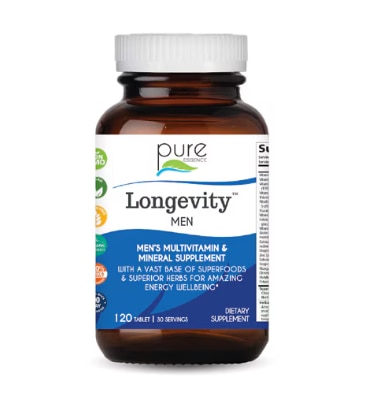Long known as the “sunshine vitamin,” vitamin D can be absorbed from the sun. And it’s a bright addition to your diet.
“Vitamin D is a nutrient the body needs, along with calcium, to build bones and keep them healthy,” according to the Mayo Clinic. “The body can absorb calcium only if it has enough vitamin D. Calcium is a major part of bones.”
Vitamin D also supports immune health, the Mayo Clinic says, and fortifies muscles and brain cells.
A new study indicates vitamin D might provide yet another benefit — potentially slowing down the aging process.†
Can vitamin D help slow down aging?
The research, published in May 2025 in the Journal of Clinical Nutrition, is based on data from a study by researchers at Harvard University-affiliated Mass General Brigham and the Medical College of Georgia.
According to the research, vitamin D supplements help maintain telomeres, which are protective caps at the ends of chromosomes that shorten during aging and are related to the development of certain diseases, Mass General Brigham says. The research “supports a promising role in slowing a pathway for biological aging,” according to the health care system.†
The new research is based on data from the VITAL (VITamin D and OmegA-3 TriaL) study.
JoAnn Manson, VITAL’s principal investigator, said in a Mass General Brigham article that this was “the first large-scale and long-term randomized trial to show that vitamin D supplements protect telomeres and preserve telomere length.”†
Manson noted that vitamin D also may help promote a healthy inflammatory response while also supporting other areas of health associated with aging, such as autoimmune health and cellular health.†
“Telomeres are made of repeating sequences of DNA, or base pairs, that prevent chromosome ends from degrading or fusing with other chromosomes. Telomere shortening is a natural part of aging and is associated with an increased risk of various age-related diseases,” Mass General Brigham explained.
The VITAL telomere study tracked U.S. women 55 over and U.S. men 50 and older for five years. In all, more than 1,000 people participated in the study. In the study, those who took vitamin D3 supplements saw a significant reduction in telomere shortening over the course of four years. This prevented the equivalent of almost three years of aging, according to Mass General Brigham.†
While researchers praised the study’s findings as promising, they said further research about the connection between vitamin D and aging is needed. The National Heart, Lung and Blood Institute supported the VITAL telomere study.
What are other benefits of vitamin D?
Baptist Health outlines nine potential benefits of vitamin D, other than the new discovery about delaying the aging process:
- Supports healthy bones. Vitamin D aids the absorption of calcium, so it plays a key role in building and maintaining healthy bones. As a combo, vitamin D and calcium can help ward off osteoporosis and prevent brittle bones.†
- Bolsters immunity. Vitamin D can support a healthy immune response, such as promoting respiratory health.†
- Supports oral health. Vitamin D can help keep your teeth in tip-top shape. The effect vitamin D has on bone metabolism is supportive to oral health, as are its anti-inflammatory properties and its ability to support the healthy production of antimicrobial peptides (short chains of amino acids) that contribute to healthy immune responses.†
- Helps regulate pressure. Research indicates vitamin D can be a factor in maintaining healthy blood pressure.†
- Pumps up muscles. Vitamin D plays a role in muscle development. This particularly helps older adults avoid slips and falls.†
- Promotes healthy weight. Researchers say the pairing of vitamin D and calcium may help support a healthy appetite.†
- Supports healthy mood. Researchers have discovered a connection between poor mood and low levels of vitamin D. However, more research on the possible benefit is needed.†
How much vitamin D is too much?
If you’re not getting enough vitamin D from sun exposure, you might take vitamin D supplements. Just be careful with the amount of supplements you consume. Very high levels of vitamin D can cause health issues such as nausea, vomiting, muscle weakness, confusion, pain, loss of appetite, excessive urination, thirst and kidney stones, according to the National Institutes of Health (NIH). Even higher levels can lead to kidney failure, an irregular heartbeat or death.
“High levels of vitamin D are almost always caused by consuming excessive amounts of vitamin D from dietary supplements,” NIH says. “You cannot get too much vitamin D from sunshine because your skin limits the amount of vitamin D it makes.”
Daily upper limits of vitamin D consumption from food, beverages and supplements are listed here in micrograms (mcg) and international units (IU):
- Age birth to 6 months: Upper limit 25 mcg or 1,000 IU.
- Age 7 to 12 months: Upper limit 38 mcg or 1,500 IU.
- Age 1 to 3: 63 mcg or 2,500 IU.
- Age 4 to 8: 75 mcg (3,000 IU).
- Age 9 to 18: 100 mcg (4,000 IU).
- Age 19 and over: 100 mcg (4,000 IU).
- Pregnant and breastfeeding people: 100 mcg (4,000 IU).
†These statements have not been approved by the Food and Drug Administration. These products are not intended to diagnose, treat, cure or prevent disease.




